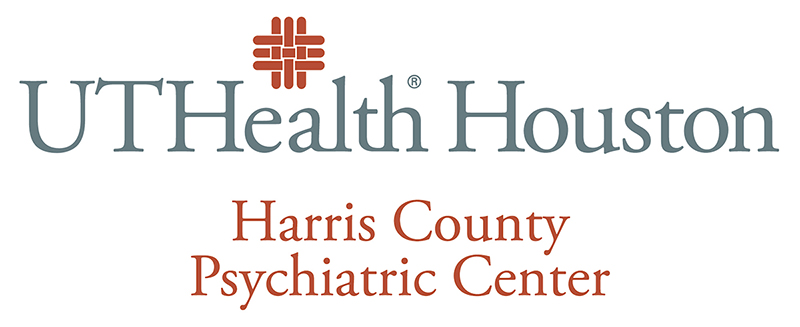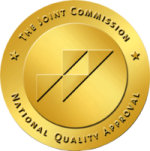UTHealth Houston Harris County Psychiatric Center
Obsessive Compulsive Disorder
Causes • Signs & Symptoms • Treatments • Medication Therapy • Behavior Therapy • Living With Obsessive-Compulsive Disorder • How Family & Friends Can Help
A type of anxiety disorder, obsessive-compulsive disorder is marked by obsessions recurring, unwanted and unpleasant thoughts that cause anxiety and compulsions repetitive, ritualistic actions performed to relieve the anxiety. These rituals can literally take hours to perform each day, interfering with every aspect of life. Victims are powerless to control the thoughts and rituals, even though they know they make no sense.
Obsessive-compulsive disorder afflicts millions of Americans and can strike at any age. The disorder causes embarrassment and confusion in many victims to the extent that they refuse or are unable to seek treatment. But treatment is available, and advances in medications and therapies have successfully returned many people with obsessive-compulsive disorder to productive, satisfying lives.
While research has led to a significant understanding of obsessive-compulsive disorder, scientists have not found the exact mechanism that triggers the illness. However, recent studies have linked obsessive-compulsive disorder to imbalances in brain chemistry. These changes usually involve serotonin, which controls moods and feelings.
Then there is always the genetic link. Obsessive-compulsive disorder usually runs in families, and accompanying disorders, other anxiety disorders and depression, are also common not only in the victim but family members as well. Other factors, such as head trauma, birth trauma, epilepsy and other serious illnesses, are believed to cause or complicate obsessive-compulsive disorder.
People who suffer from obsessive-compulsive disorder will likely display one or more of the following obsessive thoughts and compulsive behaviors:
Typical Obsessions
- Fear of contamination, by dirt, germs, chemicals, disease, bodily waste
- Fear of causing harm to themselves or another person
- Preoccupation with body parts; fear of physical deformation or inadequacy
- Fear of making a mistake
- Fear of socially unacceptable behavior - profanity, sexual advances, saying the wrong thing
Typical Compulsions
- Cleaning - excessively bathing, washing hands, house-cleaning
- Completing - performing a series of complicated steps in precise order until completed to perfection
- Repeating - saying a name or phrase, or counting to a certain number until completed to perfection
- Checking - repeatedly checking items or locations to prevent harm to themselves or others
- Hoarding - constantly collecting and storing useless items, usually counting them repeatedly
- Meticulousness - constantly tidying and arranging items in a certain way
- Slowness - taking an unusually long time to complete a particular task
Obsessive-compulsive disorder can be successfully treated with medication behavior therapy. Because individuals respond differently to the variety of therapies, it is important to work closely with your doctor to find the right combination for you.
Two categories of medications are approved for use in treating obsessive-compulsive disorder: tricyclic antidepressants and selective serotonin reuptake inhibitors (SSRIs). These medications counter the brain's imbalance of serotonin, the chemical linked with obsessive-compulsive disorder. It is important to monitor your response to medication, which usually becomes fully effective within several weeks.
While medication helps level chemical imbalances, behavior therapy helps patients to learn to resist their obsessions and compulsions. In therapy, patients are gradually exposed to the things which cause their anxieties and provoke the obsessive behaviors. However, they are not allowed to perform the rituals that usually relieve the anxiety. Over time, patients learn that their feared consequences do not occur, and their anxieties decrease.
Behavior therapy has been proven very effective, but its effectiveness relies on the patient's willingness to follow the treatment as prescribed by the doctor. Group therapy brings patients together to share experiences and draw support from one another.
Living with Obsessive-Compulsive Disorder
Obsessive-compulsive disorder can disrupt a victim's life. It can keep someone from going to work or attending school. It can keep someone from living in his or her own house. It can be embarrassing to the extent that a person refuses to seek treatment. But treatment is essential, and can usually help or end needless anguish.
How Family and Friends Can Help
The most important thing family and friends can do for a person with obsessive-compulsive disorder is to help him or her get treatment. This may involve encouraging the patient to stay with the treatment, going with the patient to the doctor, or even monitoring whether the patient is taking medication.
Another important way to help is to offer emotional support - understanding, patience, affection and encouragement. Always listen to the victim. Do not blame them for their disorder, make fun of them or tell them to simply stop their behaviors. Also, never participate in the rituals.


